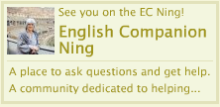Elie Wiesel’s memoir Night is taught in coordination with a social studies unit on the Holocaust. The 10th grade English curriculum attempts to capitalize on teaching world literature through historical contexts; Night is one text that bridges the educational objectives of English and social studies.
The memoir begins as the Jews of the little town of Sighet, Hungary, are rounded up and taken in cattle cars to the camps at Auschwitz and Buchenwald in 1944–1945. Wiesel remembers how the prison guard called out and separated the incoming Jews:
“Eight short, simple words… Men to the left, women to the right.”
To the left meant assignment in the prison labor camp; to the right meant extermination in the gas chambers and ovens.
Wiesel continues:
“For a part of a second I glimpsed my mother and my sisters moving away to the right. Tzipora held Mother’s hand. I saw them disappear into the distance; my mother was stroking my sister’s fair hair … and I did not know that in that place, at that moment, I was parting from my mother and Tzipora forever.”
At 15 years old, Wiesel endured starvation, injury, and disease, conflicted by his need to protect his father and his frustration with his father’s deteriorating condition. He was tormented by the relief he felt when his father passed away. The final image of Wiesel’s ghostly reflection in a mirror shortly after liberation is haunting.
Students living in rural Connecticut have a difficult time comprehending the horrors of the Holocaust; they are safely separated by time, circumstance, and geography from this event. Night helps to personalize the experience of genocide; while the book itself is slender, the impact on our students is tremendous.
Last year, students were given the chance to select an independent book to read with Night. These books varied in reading level and genre. They chose from the following list:
Fiction
Soldier Boys by Dean Hughes
The Boy in Striped Pajamas by John Boyne
Briar Rose by Jane Yolan
Milkweed by Jerry Spinelli
The Book Thief by Markus Zusak
Non-fiction
Anne Frank: Diary of a Young Girl
Maus: A Survivor’s Tale by Art Spiegelman (graphic novel)
I Have Lived a Thousand Years by Livia Bitton-Jackson
All of the books offered were added through used book sales except for Maus and The Boy in Striped Pajamas, which we borrowed from the Connecticut Library Council, and The Book Thief which we purchased new (30 copies).
There are two best selling books related to the Holocaust that have begun to show up in used book sales. The Guernsey Literary and Potato Peel Pie Society by Mary Ann Shaffer and Annie Barrows; and Sarah’s Key by Tatiana de Rosnay have been popular with book clubs. I also have several copies of Stones from the River by Ursula Hegi for Advanced Placement students. I have picked up a few copies of each and could also offer these books to the more experienced readers.
During the Holocaust unit, students had four weeks to complete their independent book and Night. We offered silent sustained reading twice weekly, and there was a showing of the film Schindler’s List (parental permission required). When students completed both the independent reading and Night, they wrote essays that compared a section of the independent reading to a section from Night.
We are moving from the older Bantam paperback edition to the recent translation by Marion Wiesel which was made popular when Oprah chose Night for her book club. Oprah also filmed a visit to Auschwitz with Wiesel; his narration is so quiet I need to put the audio setting on close captioned.
This summer I have located about 20 copies of the recent translation of Night, many of which were brand new, in the CT book sales in Westport, New Milford, Newtown and in Boise, Idaho. In addition, I recently placed an order with Better World Books for 46 “gently used” copies of Night. Combining the 20 copies I have located at summer book sales and used book stores with the 46 used copies, the department library now has 66 copies of the latest edition of the text for a total of $311.53 which is roughly $4.72/text.
Night is an important book in our curriculum, at any price. Elie Wiesel makes that important connection beyond geography, beyond time, and beyond circumstances for my students; his voice against genocide is eloquent and memorable.







